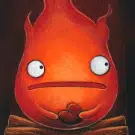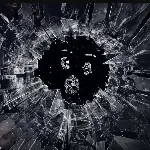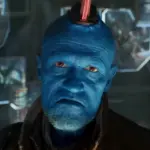Is Epic Sci-Fi really the best form of sci-fi? Imaginative elements beyond everyday life—such as piloting starships, wielding lightsabers, and conquering giant alien creatures—easily create a strong visual sci-fi aesthetic. In recent years, as epic narrative sci-fi franchises like Dune have swept the globe, many viewers have come to believe that sci-fi's appeal must stem from grandiose imagination. However, adept sci-fi writers go far beyond mere imagination, and sci-fi films should aspire to more than creating spectacular audiovisual effects. Today, I want to discuss El Eternauta and how it helps us appreciate certain valuable aspects of sci-fi that mainstream works have forgotten about but deserve celebration. This masterpiece stands as one of Argentina's greatest graphic sci-fi works, and its TV series adaptation arrives on Netflix on April 30.

Hello Peliplaters!
How can I introduce the charms of El Eternauta to you? Though it's a comic about an alien invasion of Earth, it features fewer than 20 named characters. The world's military superpowers play only minor roles, and its largest battle involves just over 500 people—mostly militia fighters. Yet despite this intimate scale, it's no exaggeration to call it an ode to human courage.
Unlike typical alien invasion stories, the writer of El Eternauta, Héctor Germán Oesterheld, eschews the foreshadowing of an advanced civilization's arrival. Instead, his story opens with a simple after-dinner card game—four old friends gather for their usual poker night, where the game's randomness represents the greatest uncertainty in their otherwise stable lives. That is, until a mysterious "snowfall" shatters their peace. As the snow begins falling, global communications collapse, and any living thing that touches even a single snowflake dies instantly. Human civilization grinds to a halt, and these friends' final card game ends abruptly. Through this stark contrast between civilization's pause and the interrupted card game, Oesterheld illustrates two crucial points: first, individual victories and defeats become meaningless when humanity's collective survival is at stake; second, in a war between vastly unequal powers, the weaker civilization often cannot perceive the danger until it arrives. The first point serves as the comic's central message, while the second embodies its primary conflict.
Having grasped these two points, many epic sci-fi narratives no longer seem truly epic to me. While the power struggles between the great houses in Dune are vast in scale, the conflicts ultimately amount to mere competition driven by individual will. Among the houses, there are no true allies—only mutual suspicion and vigilance among their leaders. In this endless competition, each house seeks greater military might, believing that superior force equals superior influence. But how does this demonstrate true epicness? Paul Atreides appears invincible when he tames the sandworm; the scene where he raises his knife and armies bow before him is undoubtedly spectacular. Yet is Paul "epic" because he's truly a giant, or simply because the camera focuses on him? When we leave the theater and look up at the night sky, do we really believe it's the moon—rather than the countless stars—that illuminates the universe?
While the narrative of Dune appears to encompass many characters, it never truly transcends the individual level. Each character faces a simple binary choice regarding the prophecy of the savior—submit or resist. Though told from multiple perspectives, the story ultimately converges into a single narrative focused on the savior's journey. Such stories feel "satisfying" because the savior figure embodies fundamental human desires: when you're the chosen one, the world owes you their existence. Power, wealth, honor, and pleasure naturally flow to you. Yet isn't this remarkably similar to the monarchical systems that humanity sacrificed countless lives to overthrow centuries ago?
In El Eternauta, the story unfolds through a single narrative perspective: Juan Salvo, one of the four card players from the opening scene. When the regular army recruits him, Juan chooses to join the militia instead. Through his observations of both the regular army and militia, we learn that true greatness stems not from the amount of power one wields, but from the choices one makes.
Compared to the regular army, the militia faces disadvantages beyond just basic equipment. They lack training and tactical understanding—even when executing orders, they struggle to maintain orderliness. Despite that, like the regular army, they're determined to win the war, and their unconventional mindset leads them to discover theoretically impossible solutions. While these individual approaches might appear as mere clever tricks compared to the commanders' strategies involving hundreds of soldiers, they prove invaluable. In a war against vastly superior forces, the commanders' strategies carry enormous risks—one wrong move could mean annihilation. Even the most brilliant commander has a finite reservoir of acumen to work with. The militia's approach is fundamentally different. They're unconstrained by centralized strategic thinking. Their focus is simple and practical: "If this method helps me survive, it can help others survive too" and "If I can kill aliens this way, others can too."
The crucial question is: what drove the militia members to shift their focus from personal survival to helping others survive? As civilians who weren't originally part of this military structure, they have no inherent duty to protect others. When humanity faces extinction, focusing solely on one's own survival would seem the rational choice. Yet despite Juan's initial skepticism of the militia, and even though some members deserted when confronting powerful enemies, many people remain for diverse reasons.
The militia includes all kinds of people, from intellectuals who'd distanced themselves from manual labor to skilled factory workers. While the workers' bravery deeply moves me, the most fascinating character is the historian. During critical moments, he appears oddly detached—neither fighting nor deserting, but obsessively recording everything he witnesses. After each battle, before other soldiers have even recovered from the intensity of combat, he'll interrogate everyone about details he might have missed. "How many aliens were killed?" "How many casualties did we suffer?" Such questions seem jarringly inappropriate amid the brutal reality of war. From Juan's perspective, this historian is tactless, and though other characters mock and ignore him, he persists undaunted. Then, after one particularly devastating battle, Juan discovers that the historian is still there. He hasn't fled, which leads both Juan and the readers to wonder: what drove this historian to risk his life, and what inner strength allowed him to face such formidable enemies without fear?
Dear readers, what moves me most about this comic isn't the cleverness of its plot twists. Any seasoned author knows they can create seemingly ingenious story turns by working backward from an improbable ending. What touches me most is how the characters preserve their trust in human goodness, even in the darkest circumstances. Though they remain wary of possible threats when meeting strangers, they always leave room for benevolence alongside their suspicions. Some readers might ask: What use is kindness in an apocalyptic world? Doesn't kindness just make one vulnerable to his or her enemies? In truth, Oesterheld doesn't assume human nature is inherently good—rather, he rejects the notion that altruism and self-interest must conflict. In his alien invasion scenario, individual conflicts lose meaning since humanity's failure means universal enslavement.
Furthermore, only optimism offers a path forward in an apparently hopeless situation. If the characters believed solely in survival of the fittest, they could never unite or transcend themselves in crucial moments. As for the historian, Juan often wonders what value historical records would have if humanity failed. But consider another question: how did this historian find purpose in his work while knowing humanity's chances were slim? For this answer, I'll let you discover it yourself in the comic or the upcoming series.
What can we expect from Netflix's adaptation? I must admit, I'm somewhat anxious. The trailer suggests story developments that diverge from my hopes. Yet Netflix's recent track record with 3 Body Problem and One Hundred Years of Solitude gives me reason for optimism. The series debuts on April 30—let's discuss it and share our thoughts then!



















































View replies 2
View replies 1
View replies 1